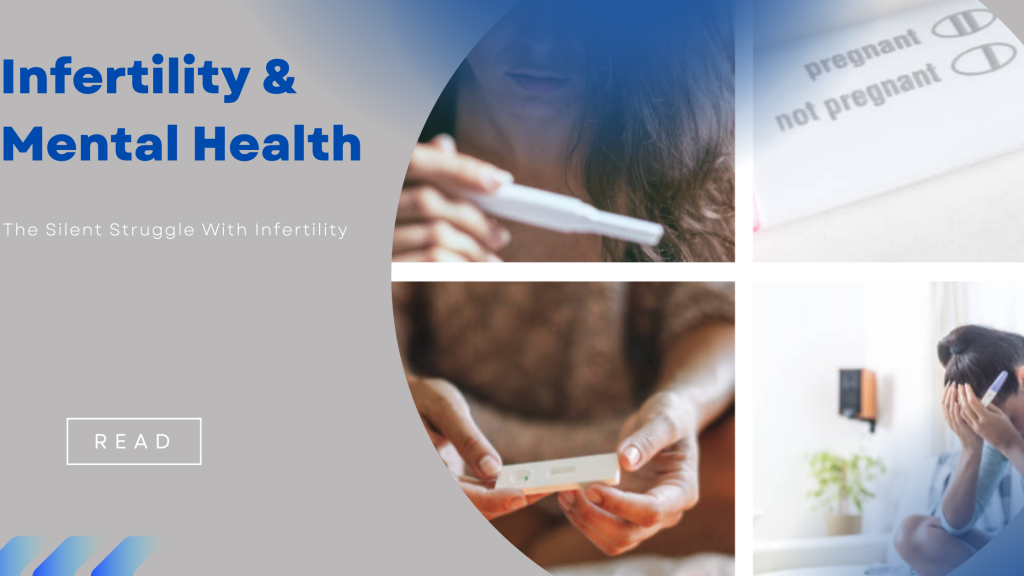Infertility & Mental Health

Infertility & Mental Health | What’s Wrong With Me? The Silent Struggle With Infertility
Infertility is often a silent struggle. So many women brag about not being a mother, but deep down really want to be. It’s easier to say I don’t want kids than to say I can’t have kids. No woman ever thinks of being labeled as infertile. No woman ever thinks about the day she is unable to give her spouse a child, because becoming a mother is something most women dream about.
Women that suffer from infertility experience immense amounts of emotional turmoil, which later leads to the feeling of shame and low self-esteem. These feelings can and usually lead to them suffering from anxiety and depression.
It is proven that women who are struggling to conceive report feelings of depression, anxiety, isolation, and loss of control. Most women don’t talk about their inability to conceive because this can be shameful to talk about, especially if communicated to a person with a child or multiple kids. Most women would rather suffer in silence.
Stress and Infertility
Stress can cause infertility and infertility can cause stress. One of the ways stress can impact a woman’s chances of getting pregnant is by causing menstrual issues. Our body reacts to stress by releasing hormones as the body’s way of protecting itself, but this can cause hormonal imbalance resulting in anovulation and absent periods.
What is STRESS? By definition, it is a feeling of emotional or physical tension. This usually happens when we are in a situation that we don’t feel we can manage or control. In a nut-shell, stress is how we react when we feel under pressure or threatened. Stress can cause mental health problems. Infertility is a very stressful experience for both women and trying couples. It can cause unintentional avoidance of sexual intercourse, weight gain or loss, Lack of energy or focus etc.
Some women resort to religious factors which help them to feel better about not getting pregnant, “maybe in God’s time, or if it is meant to be it will be.” but this doesn’t work for everyone as it’s only used as a coping mechanism to most who say this.
How to cope with Infertility?
There is no magical way to cope with infertility, however, there are things that can be done to help reduce stress and anxiety.
- Meditation- This isn’t just sitting in silence, however, it can be beneficial to deliberately still your thoughts. But medication can simply be taking a walk, reading a book, journaling, cooking, joining groups with women battling the same conditions. This can be anywhere from physical groups to social media/online groups.
- Exercise – it is statistically proven that exercising reduces stress and anxiety. This also boosts your chances of getting pregnant as this helps to balance the hormones and promote healing to the uterus.
- Eat healthy – the saying “you are what you eat” can be taken literally. There is a connection between diet and emotions, this stems from the relationship between your brain and your gut also called the “second brain.”When your diet is filled with a lot of sugar and processed foods, it not only causes health issues, but can cause mental stress as well because it feeds bad bacteria.Eating healthy food promotes the growth of good bacteria, which in turn positively affects neurotransmitter production. Dr. Cora says. Studies have even found that healthy diets can help with symptoms of depression and anxiety.
- Talk about it – keeping problems to yourself is a lot harder than talking to someone about them. It is a lot easier to deal with problems when you talk about them. Talking to someone can help release pent-up emotions. It can also help you to find a solution to the problem as it is always easier for people to help you find solutions to your problem over there own. You can find a self-help group, or a group where people share similar problems, counseling, or you can confide in a friend

